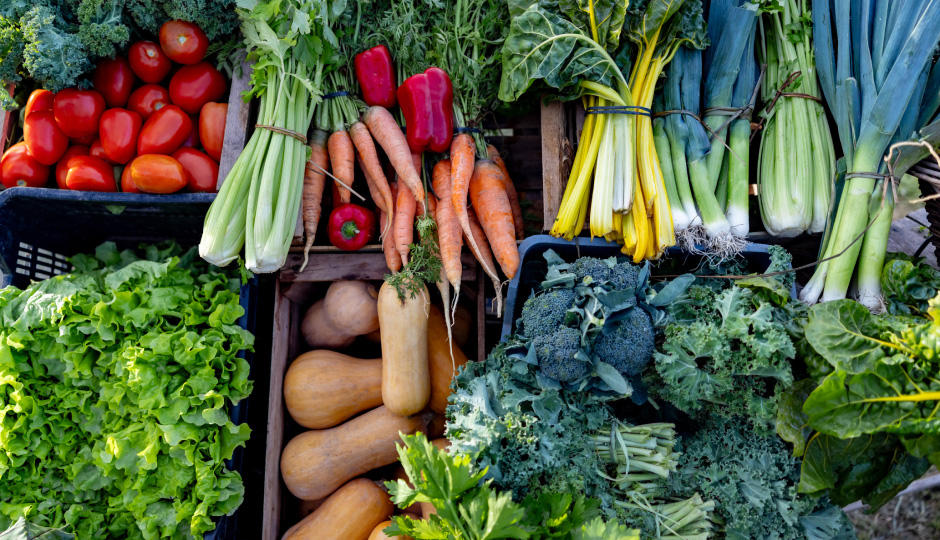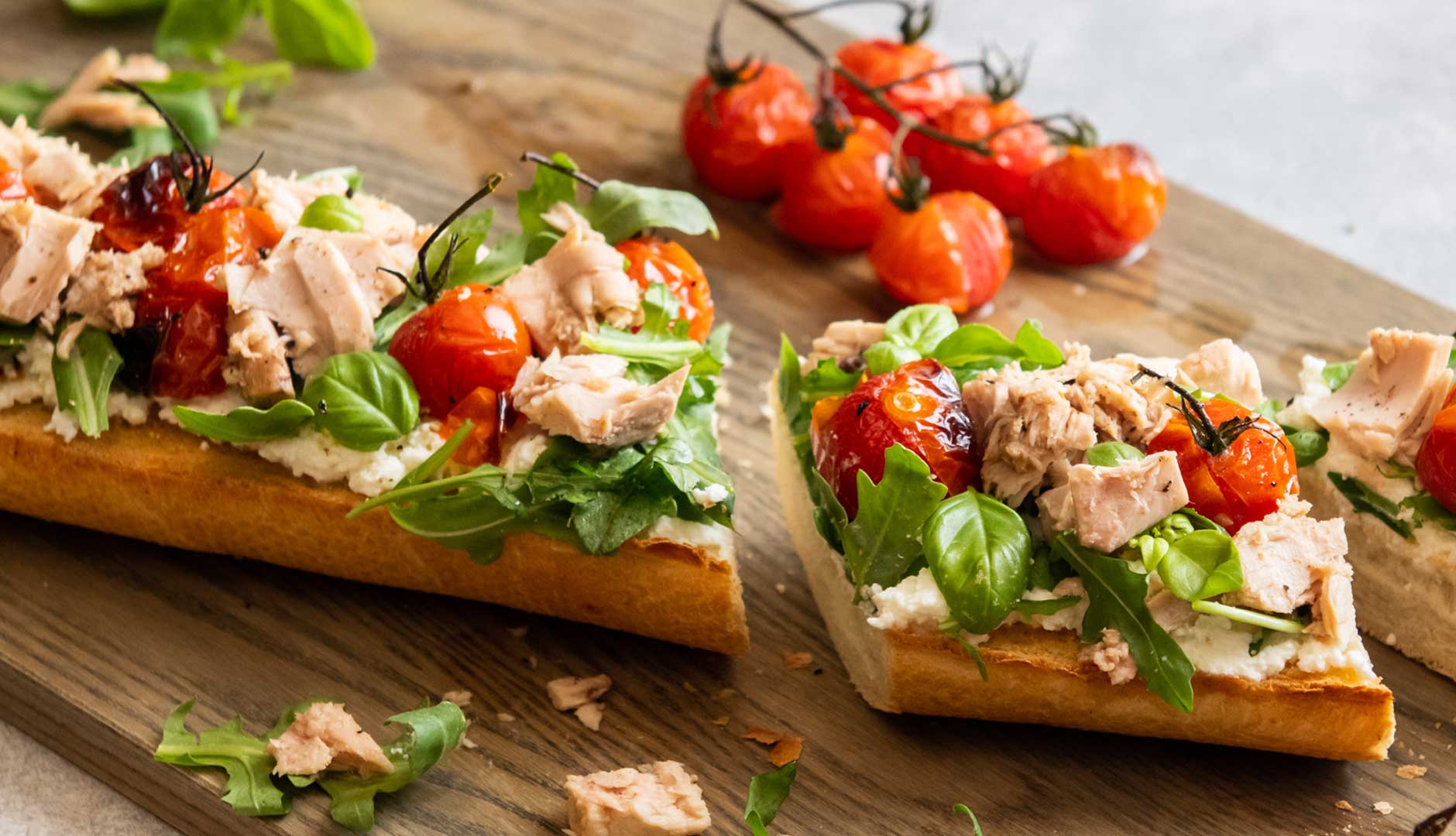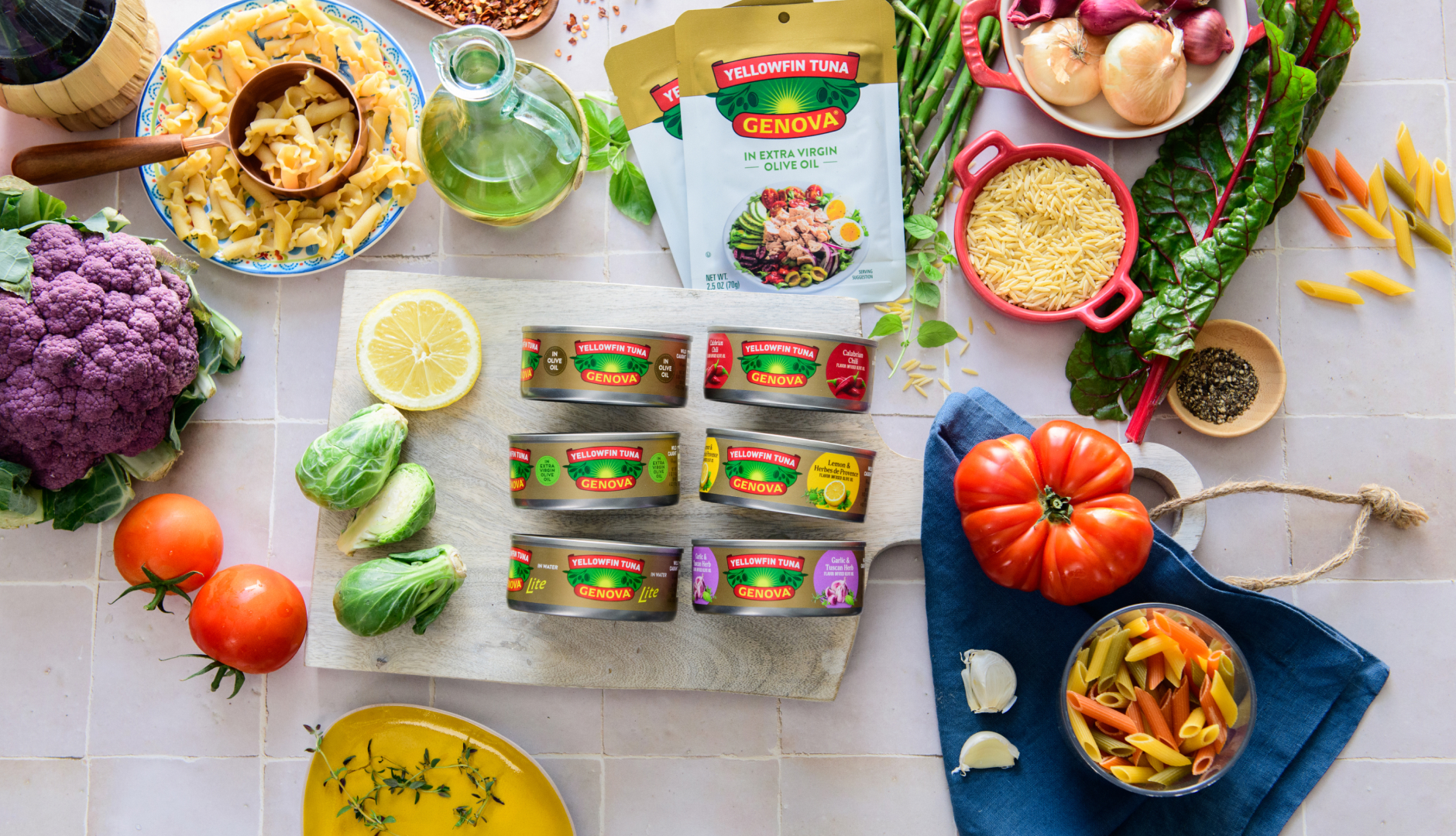6 Simple Ways to Live More Sustainably

Sustainability is one of our guiding principles at Genova Seafood. All of our tuna is wild caught, traceable, and responsibly sourced because we’re committed to protecting our seas for future generations. In the spirit of sustainable choices—and in honor of Earth Day, which falls on April 22 every year—here are some accessible strategies for making your lifestyle a little more Earth-friendly. All you need is information, intentionality, and a little inspiration courtesy of the Mediterranean lifestyle.
Skip Single-Use Plastics
One of the best (and most obvious) ways to reduce your environmental impact is also one of the trickiest. Despite growing consumer demands to the contrary, single-use plastics are everywhere, and they don’t seem to be going away anytime soon. If you’re serious about reducing your single-use plastic consumption, you still have plenty of options. Here are just a few:
- Bring your own bags to the grocery store
- Use alternatives like beeswax cloth or aluminum foil instead of plastic wrap
- Choose stainless steel or glass food storage containers
- Do less online shopping, especially for clothes
- Order takeout less, especially from places that use plastic containers
- Learn your local recycling requirements to make sure you’re disposing of plastic recyclables properly
Unfortunately, it’s almost impossible to totally eliminate plastic, but taking some or all of these steps will at least minimize your usage. (Plus, hauling your groceries around in cute canvas totes is so much more elegant than using a bunch of plastic bags.)
If You Can, Try a Car-Free Commute
Short-distance car trips are among the biggest contributors to air pollution, fossil fuel usage, and carbon dioxide emissions—so if you’ve been thinking about changing up your commute, consider this your sign. We already know for a fact that commuting less makes a huge difference: Air quality and pollution levels improved noticeably and almost immediately during the early parts of the COVID-19 pandemic just because people weren’t driving to work every day.
Of course, you still have to get to work, so why not take some inspiration from the laid-back Mediterranean lifestyle and make your commute car-free? Public transit is better for the planet and so much cheaper than driving; plus, it gives you time to read, listen to music or podcasts, or just turn your brain off and zone out (which is something you definitely can’t do behind the wheel). For short commutes on nice days, cycling or walking get you where you need to go for free, and you’ll get some fresh air and exercise, too. Depending on where you live, you may even consider selling your car and replacing it with an e-bike.
Local Produce is Worth Splurging On
Getting your food from local sources is one of the best ways to make your lifestyle a little greener (and a lot more delicious). But unless you’re lucky enough to live somewhere with a year-round growing season and easy access to locally-made animal products, eating completely locally just isn’t possible. For that reason, it’s best—and easiest—to focus your locavore efforts on a realistic target: Produce.
No matter where you live, you can likely find at least a few places to buy in-season, local produce. Here are three ways to get started:
- Choose local produce at the grocery store whenever possible
- Shop at farmers’ markets, especially during peak harvest seasons
- Join a CSA (community-supported agriculture) or other farm share to directly support local farmers and get ultra-local produce
Even if none of these options are available to you in your area, you can still minimize your environmental impact just by buying supermarket produce when it’s actually in season. You’ll save a little money and get higher quality food to boot. (Have you ever truly enjoyed a February tomato?)
Enjoy A Simpler Diet
By now, it’s no secret that a diet full of refined, manufactured foods isn’t the best choice for your personal health or the future of our planet. Instead, take a cue from the Mediterranean diet and fill your fridge with fresh, high quality whole foods—especially vegetables—and healthy fats, like those found in olive oil and fish. You don’t have to go vegan or even vegetarian, but skipping (especially red) meat a few times a week is an easy way to make room in your diet for more of the good stuff: Whole grains, veggies, eggs, fruits, beans, nuts, legumes, and fish.
Be Intentional About Your Purchases
There’s no nice way to say it: We’re all buying way too much stuff. It’s never been easier to press a button and receive a package at your doorstep 2 days later, which means it’s never been more important to resist overconsumption by simply being more careful about what you buy.
Unfortunately, buying stuff is an unavoidable part of living in the modern world. Clothes and shoes wear out, smartphones and laptops eventually die, cars break down or get totaled, furniture succumbs to wear and tear; in any given year, you’ll need to replace some, if not all, of these things. When that happens, you have two great, sustainable options: Buying used or buying for life. In general, buying used, secondhand, refurbished, or vintage goods is the most sustainable consumer choice you can make. You’re not contributing to the environmental impact of manufacturing new stuff, and in many cases, you’re keeping perfectly good old stuff out of landfills. But in some cases, investing in high-quality new items that will last years—or ideally a lifetime—is a better choice. Either way, intentionally curating your purchases will help you lead a simpler, less cluttered life.
Let Your Lawn Go Wild
If you live in an area affected by drought, you may think that cutting showers short is the only way to save water. But if you have a lawn, that’s actually the first and best place to start. Keeping grass green and healthy takes a lot of water—especially in hot, dry areas where grasses don’t stay naturally green year-round. Instead of sinking thousands of gallons of water into grass, consider using at least some of your lawn space for native plants, wildflowers, shrubs, fruit trees, raised garden beds, or pretty much anything but grass. It’s better for the soil, wildlife (especially bees), and your water bill. But even if it wasn’t, a slightly wild yard full of native plants is so much more special and personal than plain old grass.
Sustainability is on Us, Too
In honor of Earth Day, we’re also celebrating all of the ways that our parent company, Thai Union, is reshaping the seafood industry with solutions to ensure that our seas are healthy and thriving. Here are just a few areas where we’re pledging to make waves for good:
🌊 Deploying actions that reduce greenhouse gas emissions
🌊 Safeguarding life and ecosystems
🌊 Designing and operating systems that minimize waste.
🌊 Ensuring fair wages and benefits, as well as safe and healthy working conditions
🌊 Advancing a healthier world and delivering critical resources to those most in need
You can learn more about our sustainability efforts here.


